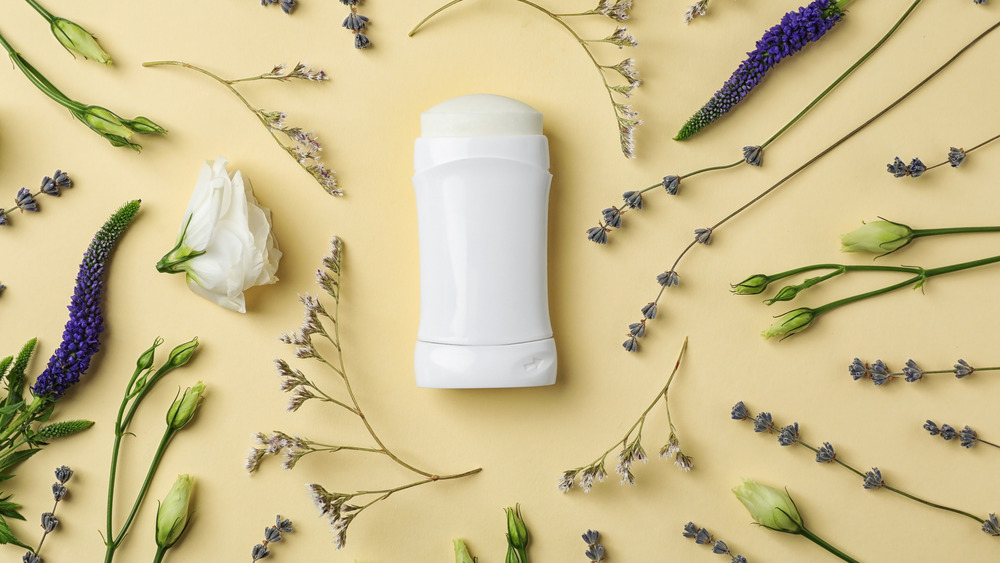Fact Or Fiction: Deodorants And Antiperspirants Are Bad For Your Health
There are a ton of medical myths circulating the Internet. People insist "I got the flu from the flu shot," another may swear that "Cold weather can make you sick," or even "You can get breast cancer from deodorants." The fight against misinformation is critical for public health, so let's start by debunking that last myth about deodorants and antiperspirants.
It has been proposed that because of the proximity to the breast, potentially harmful ingredients found in deodorants and anti-perspirants may play a role in the development of breast cancer. However, according to the National Cancer Institute (NCI), a division of the National Institute of Health, "no scientific evidence links the use of these products to the development of breast cancer."
The main root of this myth comes from the fact that most antiperspirants contain aluminum based compounds. These compounds form a "temporary plug" of the sweat glands to decrease the amount you perspire. Dr. David Pariser M.D., a dermatologist and past president of the American Academy of Dermatology, told WebMD, "The aluminum salts do not work as antiperspirants by being absorbed in the body. They work by forming a chemical reaction with the water in the sweat to form a physical plug, which is deposited in the sweat duct, producing a blockage in the areas that it's applied." There have been a few studies which suggest that some of the aluminum compounds may be absorbed by the skin and exhibit "estrogen-like effects," but again, no studies have confirmed these suggestions.
There is no current link between deodorants and breast cancer
Another ingredient which has cast a sinister light on deodorants and antiperspirants are parabens. Thought to mimic estrogen, parabens have conventionally been found in some foods, cosmetics, and even some pharmaceuticals. Despite their prevalence, the NCI claims most deodorant and antiperspirant products in the U.S. do not contain this ingredient. While parabens have been found within breast tumors, there is no scientific evidence that parabens cause breast cancer.
Some people have also theorized whether or not increased frequency in shaving your underarms can increase your chances of developing breast cancer. The answer to that is no as well (via American Cancer Society). While nicks to the skin from shaving may increase your risk of developing an infection, there has been no link to breast cancer.
Just to reiterate, there is currently no link between deodorant or antiperspirant use and the development of breast cancer. So rest easy knowing that your deodorant or antiperspirant will keep you dry and smell-free before that big meeting, without needing to worry about this medical myth.


